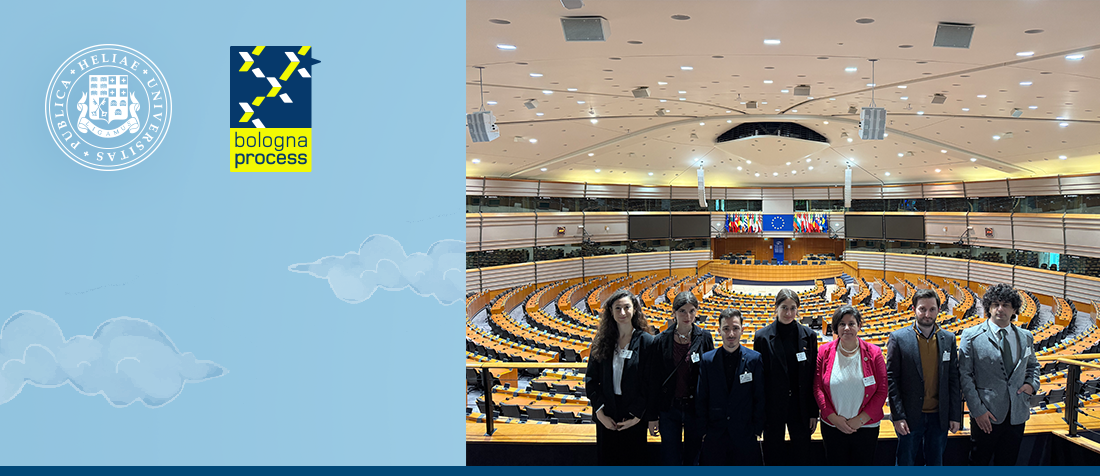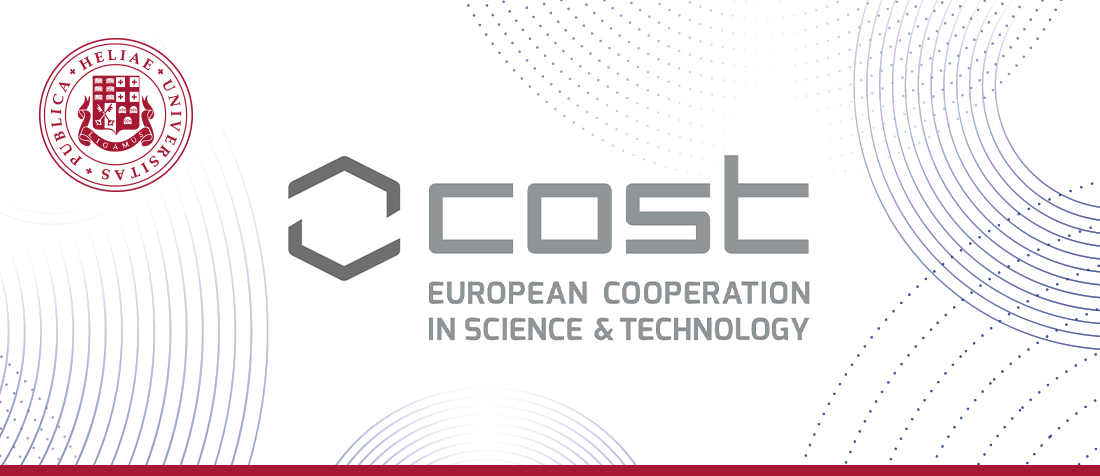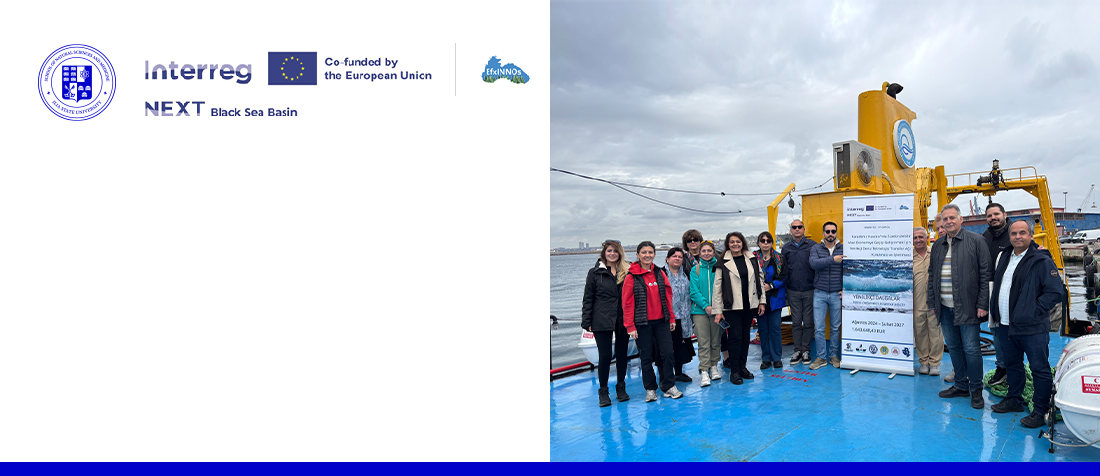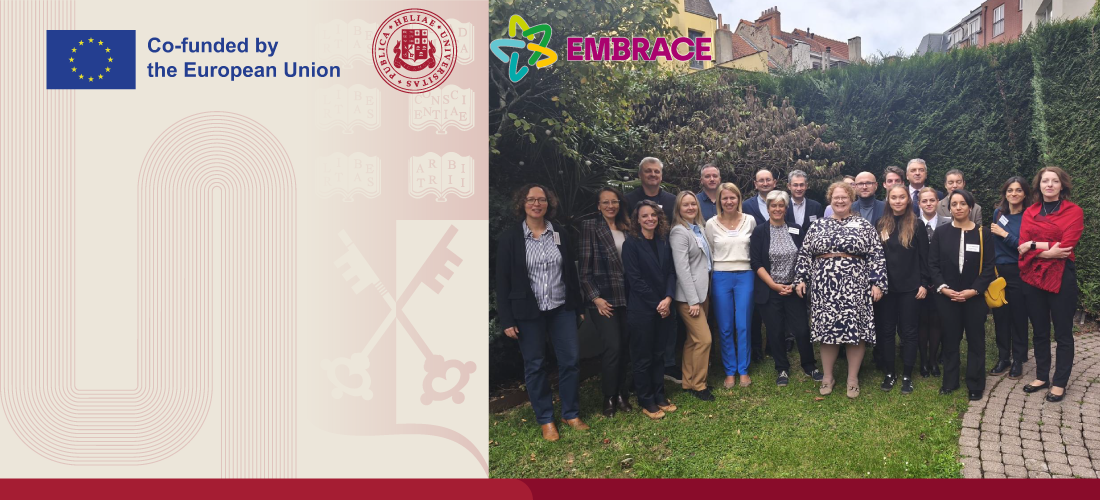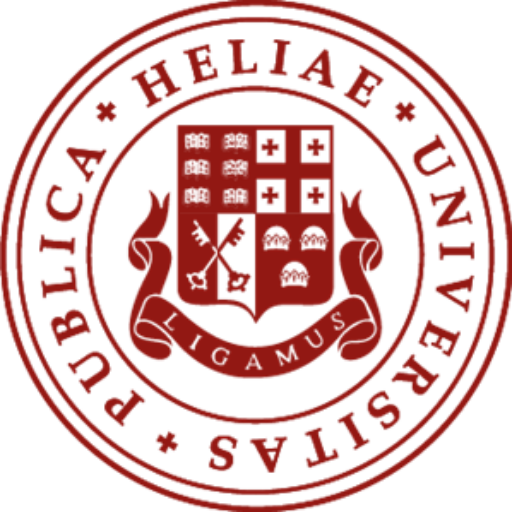In celebration of the twentieth anniversary of Georgia’s participation in the Bologna Process, Ilia State University organized a study visit to Brussels. The main purpose of the visit was to offer students a direct introduction to the foundations of the European higher education system—to give them insights into the political, institutional, and intellectual foundations on which the contemporary European university stands. During the visit, students came to understand how the field of education in Europe operates as an integrated institutional ecosystem of democratic governance, research-driven innovation, and public responsibility.
The visit took place within the framework of the student competition “Message to Europe,”whose winners”— Mariam Gugutshishvili, Nikoloz Esebua, Mariam Rikadze, Davit Badalov, Mariam Bashirovafive Ilia State University students—met, together with university representatives, the organizations and institutions that play a direct role in shaping education, research, and youth policy in the European Union. These included: the European Parliament, the European Commission’s DG EAC (Erasmus+ and the European Education Area), ENQA, EQAR, EUA, ESU, the research center Bruegel, Ghent University (UGent), and KU Leuven. The visit also included stops at historical and cultural spaces of European integration, including Experience Europe and the House of European History.
For students, the visit offered the opportunity not only to observe European policy at the institutional level, but also to see how higher education is connected to fields such as democratic governance, innovation, social responsibility, and international cooperation. As participant Mariam Bashirova notes, the university in Europe “functions not only as an educational center, but as an institution that connects knowledge, society, and political culture.”
The discussions at ENQA and EQAR addressed questions such as: What are the core standards of quality assurance? What role does university autonomy play within this structure? And on what principles does the European educational area rely when member states adopt new policy decisions? As participant Davit Badalov remarks, these meetings “made it clear that, in European practice, university autonomy is viewed as the institutional foundation upon which quality assurance, academic freedom, and international cooperation stand.”
Student reflections show that the visit was perceived not as a simple “exchange of information,” but as participatory observation of the European model. As Mariam Gugutishvili notes, within the European Union, education is not approached “at the level of a well-organized administrative system,” but rather “as a space in which knowledge and freedom remain interdependent.”
The examples discussed at Ghent University related to the university’s “third mission” (public engagement) were particularly interesting to students in terms of understanding how an educational institution is linked to a city’s ecosystem, local communities, and public policy. As Mariam Rikadze observes, “in Europe, universities often become platforms where academic research is connected with real societal needs.”
One of the aims of the visit was to understand how Georgia’s educational landscape relates to European standards and governance frameworks. Student evaluations reaffirmed the idea that the European educational space is important for Georgia not only in terms of programs (such as Erasmus+) or funding opportunities, but also as “a unified model of knowledge production, research, critical thinking, and publicness.” As Nikoloz Esebua notes, “European education is not merely a quality standard—it is a professional and intellectual ethic that the university adopts as a structural foundation.”
Student reflections show that Brussels made visible not only the “working model” of European institutions, but also the understanding that education in Europe is conceived as a long-term public investment rather than merely the production of a workforce for the labor market. In this context, academic freedom, institutional autonomy, international research integration, and student participation in decision-making processes are seen not as “additional values,” but as shared commitments across EU member states.
One of the most important outcomes of the visit was not only the acquisition of knowledge, but also the strengthening of motivation to consider what role Georgian universities might play in the country’s European integration. The students’ collective view became clear: education is one of the most strategic domains of this process, as it creates not only professional, but also cultural, civic, and intellectual connections between Georgia and Europe.
